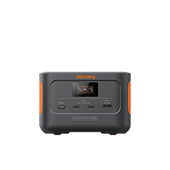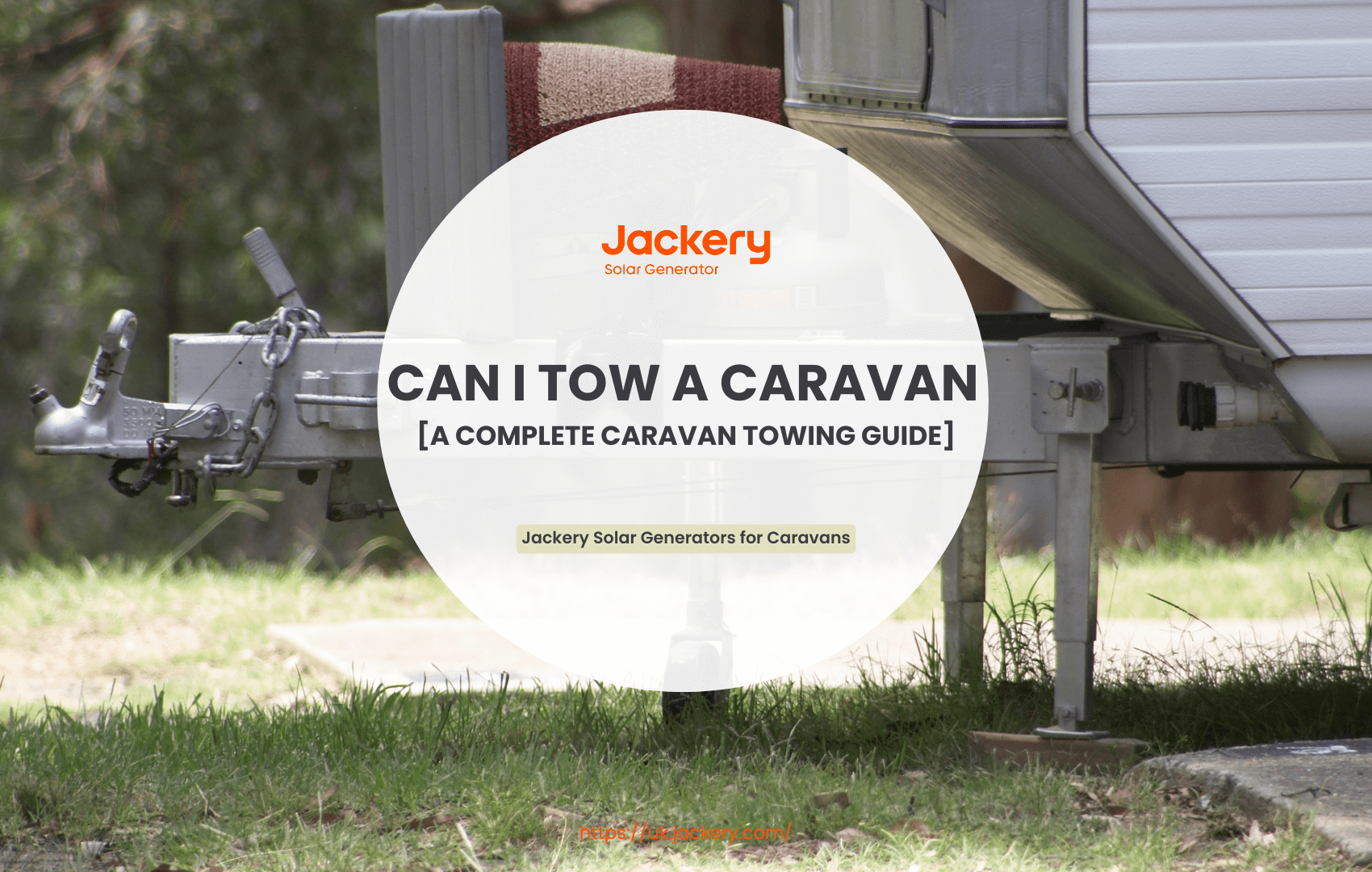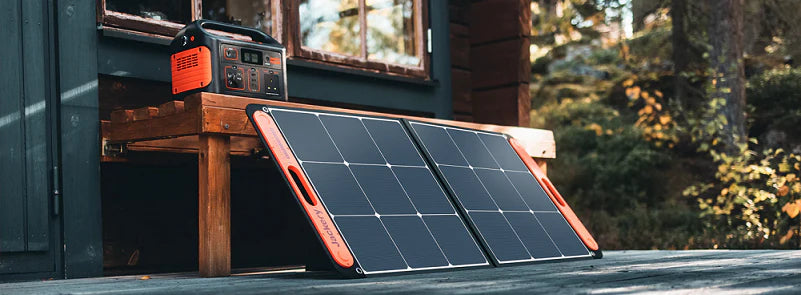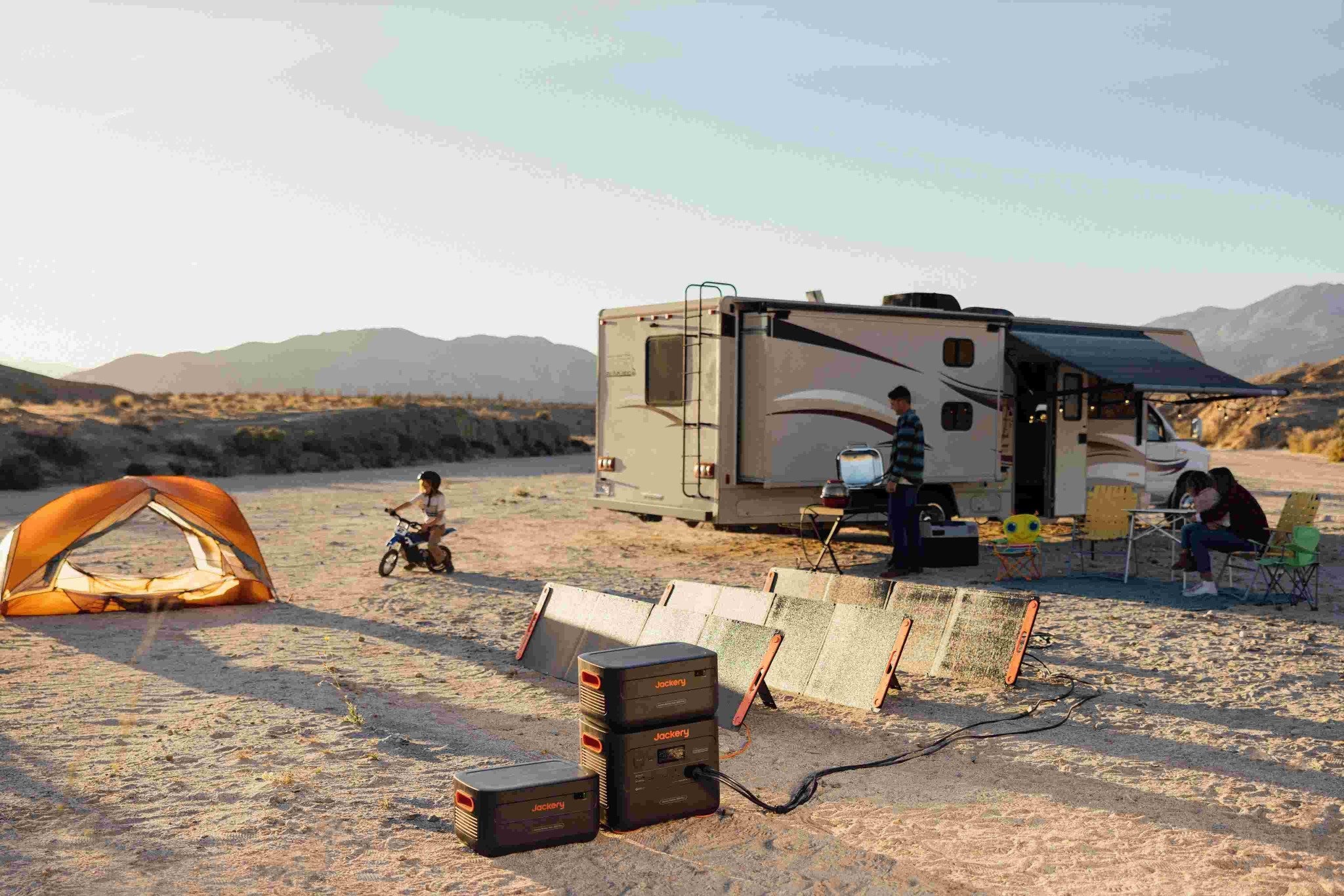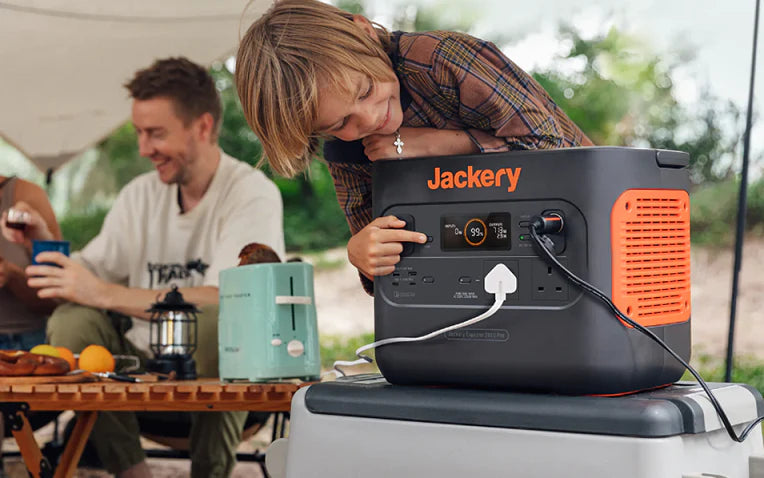Towing a caravan is a common form of transport and leisure in the UK, whether moving house, camping or long-distance travel.
However, before towing a caravan, you'd better know the relevant matters of towing a caravan. For example, in the UK, you must hold a suitable driving license to tow a caravan over a certain weight. Since December 2021, most full license holders can tow a caravan or trailer with a maximum weight of 3,500 kg.
In addition to driving license information, the following content includes information about equipment, regulations, safety checks, and practical tips for towing a caravan.
Key Takeaways: |
- In the UK, you must hold a suitable driving license to tow a caravan of a certain weight. Essential equipment for towing a caravan includes a towing bar, towing mirror, trailer or caravan brakes and a number plate. - You should never exceed your vehicle's towing capacity or the caravan's maximum permitted towing weight (MAM). - Before towing a caravan or trailer in the UK, the tow ball, connections, tyres, lights and indicators, and load and weight must be checked. - Distribute the weight evenly when towing a caravan to avoid sway and instability. - It is essential to obtain a reliable power source when living in a caravan. We recommend Jackery Solar Generator 2000 Plus and 2000 v2 to power your caravan appliances off the grid. |
Can I Tow a Caravan?
Caravan travel is convenient and flexible, adding a comfortable and practical element to many travellers' adventures. However, before setting off on a caravan trip, it is essential to determine the key factor of "Can I tow a caravan?". The following will focus on information related to towing a caravan/trailer:
Do I Need a Driver's License to Tow a Caravan?
In the UK, you must hold a suitable driver's license to tow a caravan/trailer of a certain weight. The weight you can pull depends on when you obtain your driver's license. Your driver's license usually lists this information, including the caravan's and trailer's dimensions and the weight you can drive/tow.
License Obtained Before January 1, 1997
If you passed your driving test and obtained your driver's license before January 1, 1997, you can legally drive a vehicle and trailer with a maximum authorised mass (MAM) of 8.25 tonnes (gross weight). You can also drive a minibus with a trailer over 750kg MAM.
You can usually check your license on GOV.UK's view-driving-license page.
License from January 1, 1997
If you passed your driving test and got your license on January 1, 1997, you can legally tow a trailer with a maximum authorised mass (MAM) of 3.5 tonnes (previously 750kg). This change will come into effect on December 16, 2021. You must also know that the trailer must not weigh more than your car.
Your physical license will usually have the "category BE" on it. If not, ask the DVLA to add it when you renew your license.
Is There an Age Limit for Towing a Caravan?
There is no strict age requirement for towing a caravan/trailer. However, your license usually expires when you turn 70. To continue driving, you must renew your license every three years. However, you must pass a D4 medical and the required standard eyesight test to retain your eligibility. You would keep this right after renewal if you had a 'category BE' before your license expired. For more information, please see GOV.UK's towing-rules page.
Can I Tow a Heavier Caravan?
If you want to tow a heavier caravan or trailer, you must pass the C1+E test and get a license. With a C1+E license, you can legally drive vehicles and trailers with a gross combined weight of up to 12 tonnes (MAM).
If you want to get a C1+E license, you need to complete the following three steps:
Apply for a medium truck and trailer (category C1+E) provisional licence
What Equipment Do You Need to Tow a Caravan?
When towing a caravan or trailer in the UK, you must follow regulations to ensure safety and meet legal requirements. Towing a caravan/trailer in dangerous conditions could result in a fine of up to £2,500, three penalty points or a driving ban. Therefore, the equipment you use when towing a caravan or trailer must meet specific safety standards and be used correctly. Here are the essential equipment and detailed instructions for towing a caravan or trailer:

Towing Bar
Type-approved means using a towing bar that meets EU standards. Please choose the right grade of tow bar for the weight of your caravan/trailer and make sure it matches the weight of your caravan/trailer and the towing capacity of your vehicle.
Not only does the towing bar need to be type-approved, but it also needs to have a label with the approval number and details of the vehicle for which it is approved.
Towing Mirror
Fitting a towing mirror on your trailer's rear-view mirror will allow you to see over and under the caravan/trailer and the road behind you, helping you avoid obstacles. If the caravan/trailer is wider than the towing vehicle's rear-view mirrors can cover, an extended towing mirror must be installed.
Failure to fit a suitable towing mirror when towing a vehicle could result in a fine of up to £1,000 and three penalty points on your licence.
Trailer or Caravan Brakes
If your trailer weighs more than 750kg when loaded, it must be fitted with a working brake system. In addition, all motorhomes built after 1982 must be equipped with a breakaway cable or auxiliary connector. This connects your caravan/trailer to your car's brake system, preventing it from separating.
Number Plate
The caravan/trailer must have the same number plate (including letters, numbers and font format) as the towing vehicle. The number plate must be visible and illuminated at night (either by the vehicle's rear lights or with separate lighting). When towing more than one trailer at a time, fix the number plate to the rearmost trailer.
Tow a Caravan Regulations that Need to Be Followed
When towing a caravan/trailer in the UK, you must follow strict regulations to ensure road safety. Below is a breakdown of the specific UK regulations on weight, size and speed for towing a caravan/trailer to help you travel legally and comply with the law.

How Heavy a Caravan Can You Tow? (Weight Regulations)
The weight you can tow depends on the weight of your vehicle and its towing capacity. To calculate your vehicle's towing capacity, you need to know your vehicle's kerb weight (gross vehicle weight minus the weight of passengers, fuel and any cargo) and the maximum weight of your caravan/trailer (the weight of the vehicle when empty but fully fueled). It is essential not to exceed your vehicle's towing capacity or the caravan's maximum permissible towing weight (MAM).
Towing Weight Recommendations: Although not set by law, keeping the full load of your caravan/trailer to 85% or less of the vehicle's kerb weight is recommended to ensure safe towing. Caravans or trailers with a maximum towing weight (MTPLM) between 85% and 100% of the vehicle's kerb weight may be more challenging to manoeuvre. If the weight of the caravan or trailer being towed exceeds the car itself, it should not be used as a towing vehicle.
What Size Caravan Can You Tow? (Size Restrictions)
You need to be familiar with some UK width and length rules for towing caravans/trailers to ensure your safety on the road. In the UK, you can tow a caravan/trailer up to 2.55 metres wide and 7 metres long (excluding the tow bar). Please note that the maximum length applies to caravans/trailers towed by vehicles weighing no more than 3,500 kg.
However, there is no clear rule on the maximum height of a caravan/trailer, and most sources recommend no more than 1.7 times its wheelbase (the distance between the midpoints of the wheel treads). In addition, the minimum clearance height under most bridges in the UK is 5 metres.
Speed Limits and Road Rules for Towing a Caravan
Speed limits and road rules must be followed when towing a caravan or trailer in the UK. Failure to follow these rules can result in fines, penalty points, or accidents.
The following are the speed limits for towing a caravan:
The speed limit on one-way roads is 50 mph (80 km/h)
The speed limit on dual carriageways or motorways is 60 mph (97 km/h)
The speed limit in built-up areas (where there are no road signs): 30 mph (48 km/h)
Please note that even if the speed limit is higher, the vehicle towing a caravan/trailer must never exceed the maximum speed limit.
The following are the road rules to follow when towing a caravan:
Remember that towing a caravan/trailer in the outside lane of a motorway is illegal. More specifically, on highways with three or more lanes, a vehicle towing a caravan/trailer must not occupy the right-hand lane unless that lane is closed. A caravan/trailer must not be towed with passengers.
Safety Checks Before Tow a Caravan
Before towing a caravan or trailer in the UK, a comprehensive safety check must be carried out to ensure that towing can be done safely and legally. Here are detailed descriptions of the key check items:
Tow Ball and Connections Check
Here are the key points to look out for when checking the tow ball and connections:
The caravan/trailer hitch connects to the tow ball or pins correctly. (Follow the manufacturer's recommendations.)
The coupling height is correct.
The 7-pin or 13-pin cable and plug are not damaged.
Using a breakaway cable or auxiliary coupling ensures that in the event of a failure, the trailer's brakes will be activated (if fitted), or the trailer will stop if it is separated from the vehicle.
Here are the key points to look out for when checking the breakaway cable:
The breakaway cable is not worn or damaged.
Ensure there is enough slack in the breakaway cable to prevent accidental braking.
The cable does not drag on the ground while driving.
Make sure the connection is correct, as recommended by the manufacturer.
Wheels and tyres Check
Here are the key points to look out for when checking the tyres:
Make sure there are no cuts or bulges in the tyres.
The tyres are inflated to the manufacturer's specifications for carrying the load.
Is the tread depth of each tyre at least 1.6 mm?
Are the wheel nuts and bolts tightened to the correct torque?
Are the fenders installed on the trailer and secure?
Lights and Indicators Check
Here are the key points to note when checking lights and indicators:
Check that the trailer's lights and indicators (including brake lights, width lights, turn signals, etc.) are not damaged.
Make sure all lights are securely installed and working correctly.
Load and Weight Limits Check
The weight limit of your vehicle is usually indicated on the vehicle manufacturer's license plate (or in the vehicle manual). The following is an example of a vehicle manufacturer's license plate:

(Data Source: GOV.UK)
There are four weight data in this example, representing the maximum weight of the car itself (2005kg), the maximum total weight of the vehicle and trailer (3460kg), the maximum weight of the car's front axle (1100kg), and the maximum weight of the car's rear axle (985kg). (The maximum weight includes passengers, other loads, and fuel.)
Here are the key points to note when checking load and weight limits:
The trailer is not overloaded.
The load is evenly distributed.
Cargo safety.
The above are all suggestions for safety checks before towing a caravan/trailer. Please visit GOV.UK's tow-a-trailer-with-a-car-safety-checks page for more comprehensive and accurate information. Alternatively, you can also log in to YouTube to watch how to do a safety check before towing a caravan/trailer.
Top Tips for Towing a Caravan
Whether you are an experienced professional or a novice at towing a caravan, mastering practical skills can make the process safer and smoother. Here are some valuable tips for towing a caravan that you can refer to:

Tip 1: Practice Makes Perfect
Towing a caravan is different from regular driving and requires a more extended period of control adaptation. Therefore, it is recommended that novices towing a caravan practice straight driving, turning, and reversing in an open parking lot to familiarise themselves with the trailer's size changes and inertia effects.
Tip 2: Accurately Plan the Route
Before departure, use professional navigation or maps to mark the route suitable for towing a caravan. Avoid narrow rural roads, low bridges and tunnels, and height-restricted areas. If passing through mountainous areas or steep slopes, understand the slope and curve conditions in advance and reserve more driving time.
Tip 3: Use Low Gear When Driving in Mountainous Areas
When facing mountain roads, switch to low gear in advance and use engine braking to control the speed. This can avoid frequent braking, help maintain control and reduce brake wear. When going uphill, maintain a constant speed, and when going downhill, lightly press the brakes and adjust the gear to prevent the trailer from rushing forward due to inertia.
Tip 4: Distribute the Load Evenly
When towing a caravan, distribute the weight evenly to avoid shaking and instability. Place 60% of the load at the front of the caravan (close to the towing vehicle) to avoid swinging due to excessive weight at the rear. Heavy objects should be fixed to the low floor using professional tools such as straps and anti-skid mats to reduce the centre of gravity shift.
Tip 5: Regular Safety Checks
Even if a comprehensive safety check has been carried out before departure, it is best to conduct routine safety checks regularly while driving. For example, when stopping at a service area, you can check the trailer's tyre pressure, brake system, and connection devices for looseness and adjust the cargo fixing status. Increase the frequency of inspections to ensure the stability of the vehicle and trailer.
Tip 6: Take Regular Breaks
Towing a caravan is more tiring, especially for long-term driving. Adequate rest for the driver can relieve fatigue and reduce the probability of operating errors, especially in hot or bad weather. It is recommended that you stop and rest every 2 hours. UK motorway service areas (such as Moto and Welcome Break) usually have trailer-friendly areas.

Jackery Solar Generators for Caravans
Unlike just a power station that needs to be recharged from an AC outlet, a Jackery Solar Generator allows you to produce electricity from sunlight. This means you can stay off-grid for extended periods in remote, scenic locations across the UK without worrying about finding an electric hook-up.
The UK boasts an incredible variety of landscapes, from the Scottish Highlands and Welsh mountains to the Cornish coast and Norfolk Broads. Many of the most beautiful and peaceful spots are wild camping locations or smaller, independent sites with limited or no electric hook-ups. A solar generator liberates you from the grid, allowing you to immerse yourself in these areas for extended periods.
Unlike traditional petrol or diesel generators, a Jackery Solar Generator produces no harmful fumes and operates silently. This is crucial for maintaining the tranquillity of natural environments, respecting local wildlife, and being a considerate neighbour on campsites. Here, we recommend Jackery Solar Generator 2000 v2 and 2000 Plus.
Jackery Solar Generator 2000 v2
The Jackery Solar Generator 2000 v2 (which includes the Jackery Explorer 2000 v2 Portable Power Station and SolarSaga 200W panels) is a strong contender for caravanning due to its balance of power, portability, and advanced features, making it a convenient choice for many caravanners.

Sufficient Capacity (2042Wh): This provides enough energy to run a wide range of essential caravan appliances and devices for a significant period. You can easily power LED lights for multiple evenings, charge all your phones, laptops, and cameras, run a portable fridge, and even operate a kettle or coffee maker several times daily.
Strong Output (2200W Continuous / 4400W Surge): This allows you to handle most common caravan appliances, including many microwaves, hair dryers (used sparingly), electric kettles, and even some small portable heaters or air conditioners for short bursts. The high surge capacity ensures that appliances with high startup loads don't trip the system.
Impressive Portability (Approx. 17.9 kg / 39.5 lbs): This is a key advantage of the 2000 v2. It's significantly lighter and more compact than its more powerful sibling, the 2000 Plus. This makes lifting in and out of the caravan much easier, manoeuvring around tight spaces, and even taking on day trips (if you need power away from the caravan itself). The foldable handle further enhances its portability. For many caravanners, reducing weight and bulk is a significant priority.
LiFePO4 Battery Chemistry: The 2000 v2 uses a LiFePO4 battery, which is known for its long lifespan (4000 charge cycles to 70%+ capacity) and enhanced safety. This means the unit is built to last for many years of caravanning adventures.








① 2042Wh Capacity & 2200W Output: Powers Most of Devices, lasts 10 Years (4000 Life Cycles)
② Lightest and Smallest 2kWh LiFePO4 Power Station¹: 41% Smaller and 35.6% Lighter than Industry Standard², only weighs 38.6 lbs.
③ Multiple Charging Modes: AC/Solar/Car/AC+Solar/AC+Car; Full battery in just 1.33 hours with Emergency Super Charge
④ ChargeShield 2.0 Protection Technology: 62 Layers of Comprehensive Protection with Safety Standards Cerfitication
⑤ Ultra-Quiet Operation via App³: Charging Mode Noise ≤ 30dB
⑥ Savng Energy Bills: Harness Free Solar Power to Replace Costly Grid Electricity
⑦ Innovative GaN Inverter: One Charge A Day — Boosted Lifespan by 15,330 Minutes, 175.9kg of Carbon Emissions Saved over 10 Years⁴
⑧ Advanced 200W solar cells with multi-layer tech: features a high solar conversion efficiency of up to 25%
Jackery Solar Generator 2000 Plus
While the Jackery Solar Generator 2000 v2 offers an excellent balance for many caravanners, the Jackery Solar Generator 2000 Plus (which includes the Explorer 2000 Plus Portable Power Station and SolarSaga 200W panels) provides a significantly higher level of power, flexibility, and longevity that can make it the necessary choice for specific caravan trip styles and needs.

3000W Continuous Output (6000W Surge): This is the biggest differentiator. The 2000 v2 offers 2200W, which is good, but the 2000 Plus's 3000W allows you to run virtually any caravan appliance without worry. Even if an appliance has a high momentary startup demand, the 2000 Plus can handle it, ensuring smooth and uninterrupted operation.
Capacity from 2kWh to 12kWh: This is the game-changer for serious caravanners. While the base 2000 Plus has a similar 2042.8Wh capacity to the 2000 v2, its unique ability to connect up to five additional battery packs (Jackery Battery Pack 2000 Plus) allows you to expand the total capacity to a massive 12kWh.
Multi-Day/Week Off-Grid Trips: This expandability is necessary for caravanners who want to spend extended periods in remote locations without hook-ups (e.g., exploring the Scottish Highlands, remote parts of Wales, or long tours of national parks). It means you can run your caravan's fridge, lights, and heating (in bursts) and charge all your devices for days, even weeks, without grid power.
Enhanced Charging Speed and Efficiency: The 2000 Plus quickly recharges from a wall outlet (0-100% in about 1.7 hours), which is invaluable for rapid top-ups when you can plug in. The 2000 Plus can handle a much higher solar input (e.g., fully charged in 2 hours with 6 x SolarSaga 200W panels), which means you can generate and store massive free energy from the sun in a shorter period.





- Expandable for Versatile Scenarios: 2-12 kWh of expandable capacity
- Leaping Performance: Powers Heavy-duty Devices up to 3000W
- Ultra Fast Solar Charging: Advanced IBC Technology, Fast Solar Charge in 2 Hours
- Long-lasting Reliability: Outstanding LiFePO4 Battery with 10-Year Lifespan
- ChargeShield Technology: Using a unique variable-speed charging algorithm, fast charge technology boosts battery life by 50%
- Guaranteed Satisfaction: Excellent 5-Year Long Warranty
FAQs
The following are the frequently asked questions about towing a caravan in the UK.
1. Can I tow a caravan on a standard car licence?
You can tow a caravan of a certain weight with your car licence. However, please note that the weight of a caravan you can tow depends on when you get your licence. For more information, visit the towing-with-car page on GOV.UK.
2. Can anyone tow a caravan now?
No. You need an appropriate licence to tow a caravan/trailer of a certain weight. Also, the weight you can take depends on when you get your licence.
3. What is the new rule for towing a caravan?
The new rules for towing a caravan in the UK were enacted on December 16, 2021. They allow drivers who passed their driving test on or after January 1, 1997, to tow a trailer up to a maximum authorised mass (MAM) of 3,500kg without taking a separate test.
4. Can an electric car tow a caravan or trailer?
Yes. Many electric cars on the market today are appropriately rated for towing. If you plan to use it to tow a caravan, buy the right electric vehicle. A towing-approved electric car can even outdo a petrol or diesel car at towing. For example, the Tesla Model Y is a car with a towing weight of up to 1,600kg, which can tow a medium-sized motorhome.
Final Thoughts
In conclusion, safe driving and proper planning are key when towing a caravan. Knowing what to tow a caravan in advance can help reduce penalties and accidents. This blog is designed to help you pull a caravan safely and legally in the UK. You can find information and regulations on towing a caravan. Of course, the most important thing is not to exceed the towing capacity of your vehicle or the maximum allowable towing weight (MAM) of the caravan itself.












